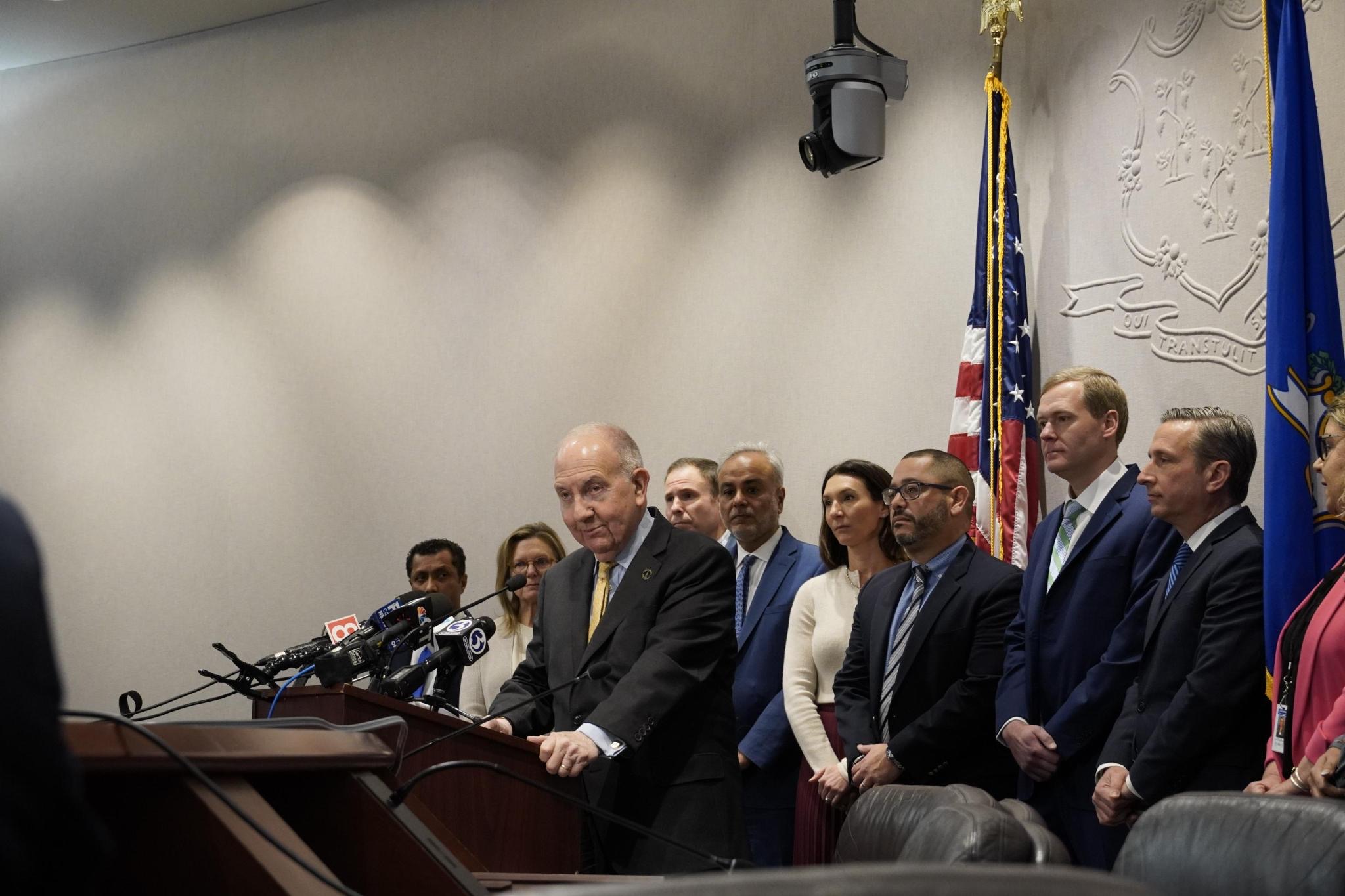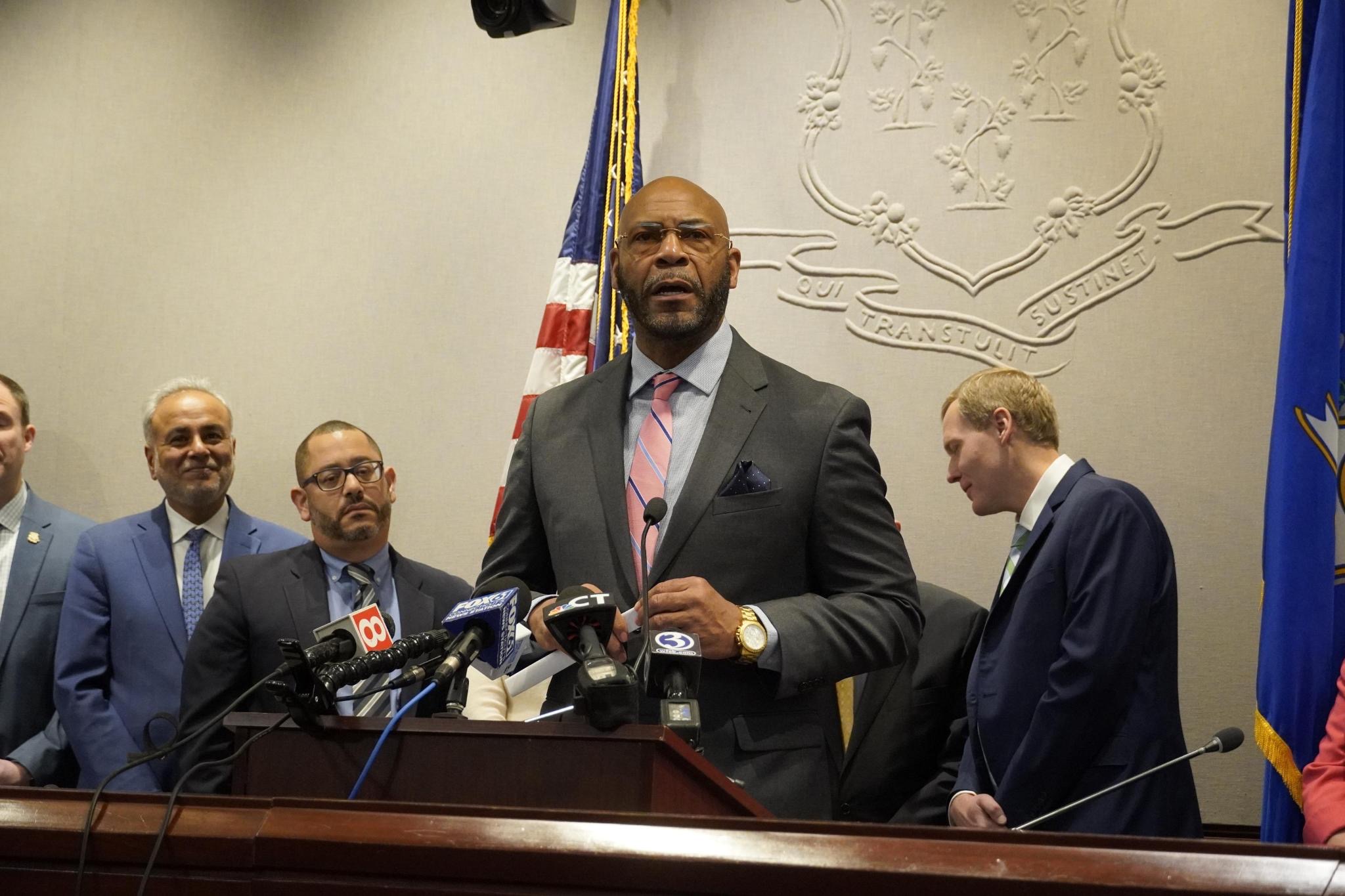Education Funding, Reforms Among Leading Legislative Priorities
by Hugh McQuaid
January 14 @ 9:35 am

Legislative leaders from the House and Senate signaled Monday their intent to bolster funding for Connecticut schools, assist municipalities with the growing need for special education services, while enacting reforms to ensure state dollars are spent in Connecticut classrooms.
Leaders of the Democratic majorities in both legislative chambers offered a glimpse of their top priorities during a rare joint news conference in the Legislative Office Building. School funding — particularly support for special education services — represented a leading priority for both.
“We all know that we need to do all that we can to increase the resources for our entire education system,” Senate President Martin Looney said. “We need to work on preparation for quality preschool and daycare, for our K-12 system, for higher ed and for special ed. So there will be a focus on education throughout the entire spectrum of age from childhood into early adulthood and college graduation.”
Looney was joined by House Speaker Matt Ritter, the majority leaders of the House and Senate, as well as the co-chairs of legislative panels education and special education. The event signaled consensus between the two chambers, which often have distinct priorities.
Connecticut has made consistent and deliberate strides to increase its support of education over the last several years. State budgets adopted by the General Assembly have boosted funding for education by a total of $364 million since fiscal year 2023. The legislature supplemented this support with an additional $150 million dedicated to Education Cost Sharing Grants.
Lawmakers said they would seek to build on that progress during this year’s session by continuing to bolster funding for Connecticut schools. However, those investments will be paired with reforms to enhance state oversight of boards of education and improve transparency in how education dollars are allocated and spent, legislators said.
“We’re going to enact reforms to ensure that these dollars are spent in the classroom on the children directly,” said Sen. Doug McCrory, a Hartford Democrat who co-chairs the Education Committee, “on the children — our resources should be directed towards the children, whose families are looking for a quality education.”
The Monday press conference followed the session’s first meeting of the Education Committee, where lawmakers raised legislative concepts including Senate Bill 1, a priority bill that will eventually contain many of the ideas discussed at the news conference.
The growing need for special education services will be a primary focus, leaders said.

Senator Doug McCory, D-Hartford, discusses education policy during Jan. 13, 2025, press conference on legislative priorities. Credit: Joe Hamann / Senate Democrats
Special education programs are essential but costly, placing a significant financial strain on municipalities. The enrollment of a student with special needs can create unexpected challenges for local budgets.
The state helps to offset the cost of special education services, in part, through an initiative called Excess Cost Grants. These grants are designed to reimburse towns and cities for special education costs when costs associated with a special needs student exceeds 4.5 times the district’s per-pupil expenditures.
In 2022, the legislature amended the Excess Cost Grant program to create a tiered reimbursement structure to ensure that the state’s poorest municipalities were given funding priority. Since then, state budgets have increased funding for the grants by $50 million over the last two fiscal years.
On Monday, legislators said those efforts had not been enough to keep pace with the rapid increase in the need for additional special education funding experienced by Connecticut towns and cities. From fiscal year 2022 to fiscal year 2023, the estimated cost of fully funding the Excess Cost Sharing Grant program surged from $175.7 million to $203.8 million, according to legislative estimates. That number climbed to $255.1 million in fiscal year 2024.
“At some point there’s a moral obligation in the state of Connecticut,” Ritter said. “We need to help towns, also to support these families so they’re not forum shopping from town to town on where they can get the best services, when they’re already dealing with the fact that they have a child going through, probably, some serious intellectual and physical disabilities and their struggle to get a public education.”
Share this page: